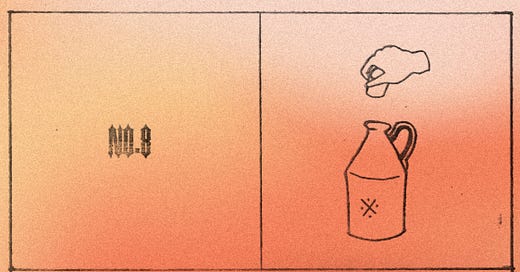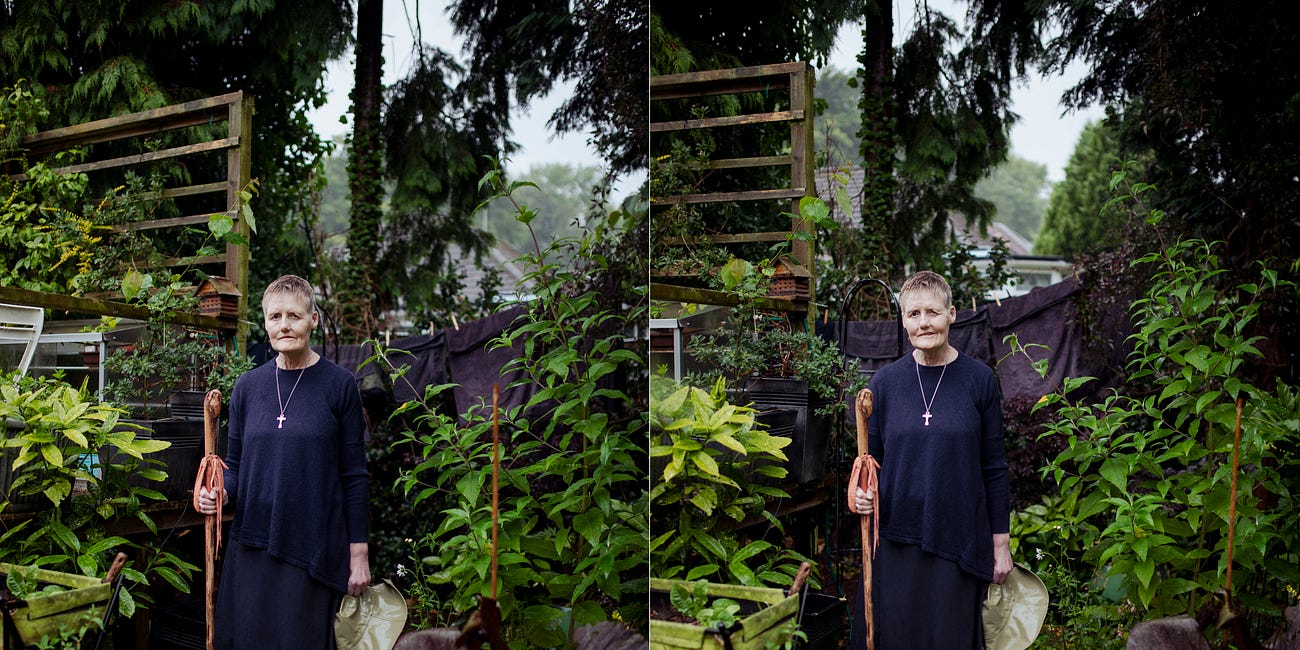The puzzle of kindly deceit
A well-meant dishonesty seems to go by uncommented by the Desert Fathers & Mothers. But then again, what would you prefer?
Hi to our new subscribers — we’ve been quiet here, but we’ve been hard at work on our new print issue, which is due to drop just after Easter Sunday. You can pre-order Passio Issue #15 here! We’ll be sharing much more about it very soon.
Part 8 of our Ulterior Lives series: A Slow Research Project into The Outsider Politics of Monasticism. Read the introduction here.
Here's a story I always find oddly moving.
Two monks go to town to sell their wares (it seems to be the common thing that hermits would make baskets and such out of reeds and sell them for a bit of money). They part ways and go on their respective errands. When they reconvene, one of them tells the other that he has just fallen into the sin of fornication. He is ashamed and dispirited, and has decided to abandon his failed monastic life. At this point the other monk replies that he also has in fact just fallen into the sin of fornication while they were both about their business. “Let us go together,” he suggests, “and do penance with all our might, and God will pardon us sinners.” And this is what they do.
Perhaps you have guessed that the second monk had not really fallen into the sin of fornication at all. He made that story up because he saw how crushed his friend was. In his empathy, he span a yarn through which he might join the isolated other and walk alongside him toward what seemed to him a more hopeful path.
To me this tale is so problematic and so deeply moving I hardly know where to begin. There are more than a few tales of this sort in the sayings of the Desert Fathers and Mothers, in which a person is moved by empathy for the feelings of another to some gambit of untruthfulness.
Most of the other examples I've noticed have to do with wine. These come as many variations on a common theme. A monk has chosen to renounce wine (note that among the desert hermits there was no common rule for life: they took inspiration from one another, but each chose their own rule). Along comes another monk who offers them food and wine. The first monk drinks the wine and feigns gratitude because they don't wish their host to feel discouraged, alone, slighted or judged. Afterwards, however, they will go and subject themselves to some harsh penance for having drunk the wine. A disciple of Macarius used to tell other hermits, “For God's sake do not give him any wine. In his cell afterwards he pays for it with torment.”
As ever, there is not a set rule but a complex of tales. Another monk, when offered wine, throws it down and says, “take this death away from me!” Both patterns recur often enough, but when the kindly deceit occurs, there is never any moral question mark over the dishonesty. The two paths seem to be upheld as equally valid approaches.
In the original story, the two monks return to their cells in the desert. Both do penance. It says in the end that God forgave the fallen monk because of his brother who practiced an unwarranted penance. And so even God smiles upon the deceit.
I hope at this point in this slow research project, no one will assume that everything described here is prescribed as a straight-forward answer to the world’s woes. If there are any answers, they come at angles. Kindly deceits are a questionable idea. But the preservation of these sorts of tales, alongside the many tales of brutal truth-tellers, reveals something. Among that community, the hermit who re-storied the world a little because of their tender care for others— and who always took upon themselves the deficit in the facts — this hermit embodied a virtue, even if the expression of it was rather eccentric.
The virtue is empathy. Empathy was recently described by the richest man in the world as the fundamental weakness of Western civilisation. You may ask a colonised person for a second opinion on whether empathy was ever a striking characteristic of Western civilisation, if you like. But among the desert hermits are tales of people who were empathetic to a fault. That community lived out a comedy of empathies for one another with deep integrity. I have questions, but I prefer it absolutely to the present tragic farce of loveless political power, which seems to me more absurd by far, and riddled in cowardly, self-bolstering lies which are always paid for by powerless others.
Talking to a 21st Century hermit
“Hermits are just people,” Rachel Denton tells me. “Many people are interested in what you wear, what you eat, your ‘cave’. And they’re very disappointed, of course,” she adds offhandedly.









